Blog Archives
Pro-US and Anti-Russian Japan: Eyewitness Overview and Predictions (Striking parallels between Japan and Poland)
Lada says
ANALYSIS AND PREDICTIONS RE. JAPAN
Politically, I do not foresee any improvement between Russia and Japan at this time. Economically, there is a little bit of positive, mutually interested development.
The propaganda has very deeply penetrated Japanese society. The future of bilateral relations is murky and uncertain – that’s why Patricia is seeing a confusing picture: it is undecided and confusing; it’s one step forward, two steps sideways. Distrust by average Japanese towards Russia will continue, heated up by the US-supported MSM and political propaganda.
I have to say, average Russians also don’t feel so hot towards Japan. These are very old suspicions. Pity – there is so much both Russia and Japan could accomplish together and learn from each other! Attempts are being made by Russia, but all this goes nowhere. Russia and Japan still don’t have a signed peace treaty after WWII. Imagine that!
The way Japanese MSM and politicians present it, Russia is the biggest enemy, while it was actually their ‘official protector’ the US that dropped A-bombs on Hiroshima and Nagasaki and still has bases on Japanese territory. In favor of creating the image of the arch-villain out of Russia they even forget their other eternal arch-enemy No. 1.5 – China. It would be hilarious if it wasn’t so sad!
I am not advocating Japan becoming an enemy of the US – just the opposite. For Japan it’s crucial to make up with all neighbors, including Chinese, Vietnamese and Russians, while maintaining good relations with everyone else. The thing is, historically speaking Japan is considered the biggest bully and aggressor in Asia, where just about every country distrusts and has a grudge against them. This is why Japan doesn’t feel like an Eastern nation, preferring to side with the West. No one really accepts them in the East, and their own policies and uncompromising, arrogant attitudes towards neighbors only reinforce that alienation.
From this perspective, Japan is a perfect vibrational match to the USA. No wonder they are such good friends, despite all the latest frictions. Some of the friction is for show, while certain agreement on issues still exists. The rest is Japanese politicians playing off the populist nationalistic sentiment of their countrymen. Either way, Japanese politicians are hardly doing any favors for the long-term development of their country.
US will continue keeping Japan under tight control for at least another 5-7 years, or more (depends on economic interests and how soon Europe swings to Russian side). Russian – Japanese business will be developing a little, as it has, because it’s mutually beneficial. But nationalism will persist and authorities will continue playing anti-Russian and anti-Chinese cards to keep their power.
PM Abe is really inconsequential. It doesn’t matter who will come after him as they will act like twins. This is the time for ANY PM who is nationalistic; yells about returning the Kuril Islands (um… excuse me, ‘northern territories’) – which, by the way, will never happen; escalates military spending, while behind the scenes takes orders from bosses across the ocean, etc.
Kuril Islands and Sakhalin were Russian territories before the 20th century, and they became part of Japan after Russia lost Russo-Japanese war in 1904. As a result of WWII, Russia got the Kuril Islands and Sakhalin back as part of Japanese reparations after Japan lost on the side of Hitler.
It is important to understand one crucial thing about Japanese politicians. It is imperative for them to scream about Kuril Islands and Russia as aggressor in order to divert attention from the true problems inside the country. And these are: 1. the de-facto occupation by the US, complete with US naval bases; 2. Fukushima consequences; 3. economic situation and debt problem; 4. unresolved historic issues, including Hiroshima; 5. social dissatisfaction of a very closed-up society.
Of course Japanese MSM, like MSM almost everywhere in the world, is under the US thumb.
Former Japanese PM Hatoyama is known for his recent surprise visit to Crimea, which he accomplished despite the heat such visit drew in Japan. He is a surprisingly decent and brave guy for a Japanese politician, but he has no chance right now. Maybe in a few years. Being thought of as associated with Russia in any way (even though there is really no association) only hurts his chances of being heard. Pity, but this is the reality.
Still, what Hatoyama has done wasn’t only brave, but also was necessary to shutter the so-called “unified Western front” in relation to Crimea. Actually, his very courageous feat caused a European shift. Since then, a French parliamentary delegation has visited Crimea, and I believe a German Bundestag delegation is next.
Striking parallels between Japan and Poland you would never imagine existed!
In some ways, Japan as far as its political composition and views go, reminds me of Poland. But I think even in Poland there are more people who see the world situation with clearer eyes. This is because more Poles speak Russian and still remember the old days when Russia/USSR did absolutely everything to extend the hand of friendship to Poland, forgetting the old grudges.
You all know my view on this: perhaps the USSR and Russia have overdone the forgiveness thing. Not only the USSR liberated Poland in 1945 at the cost of hundreds of thousands of lives, but Stalin also made sure Poland received a huge chunk of German territory after WWII, as part of German reparations. USSR also saw to it that Polish economy did well, investing resources and money USSR should have kept for its own after-the-war reconstruction and development.
Meanwhile before the war, Poland under its virtual dictator Pilsudski had been a pretty vicious aggressor. Using Hitler’s aggression as a distraction, Poland tried to bite off pieces of Czechoslovakia, Austria, and any country they could get their hands on. This was Polish attitude historically, including attempts to invade Russia to replace Russian tsars with usurpers. Not to mention that since 18-19th century Poland was consistently engaged in molding Malorussia, aka, Malorossia (known today as Ukraine) into anti-Russia.
The USSR, preferring to sweep the truth under the rug, caused Poland to feel they didn’t have to pay the price for past misdeeds, encouraging in turn more arrogance, playing victim, and bolder aggression, which we are observing today.
As we know, Japan did pay a dear price in the form of territories, lives and humiliation, for the WWII and pre-war aggression, as did Germany. In that, Japan and Poland are very different.
Poland and Japan are also very different in terms of culture.
Finally, Japan is a much more economically developed country, with infinitely larger economy, which once was the engine of global growth, and substantially higher standard of living than Poland. (But both countries are very similar in a sense of embracing the Western lifestyle and capitalist economic principles based on US ‘advice’ – Japan after WWII and Poland after the breakup of the USSR – and paying for their capitalist development by raking in insurmountable level of debt, which is now coming back to haunt them.)
Yet, both Poland and Japan, being so different in just about every sense, are:
- Thoroughly and willingly under the US thumb;
- Have a lot of historic distrust relative to ALL neighbors;
- This causes them to rely on alliance with the US against closest neighbors, US being the only country their selective memory forgives for any wrongdoing;
- Both countries have substantial territorial disputes with more than one neighbor;
- MSM/politicians in both are engaged in pretty vicious anti-Russian propaganda, while being supported by the US, and in fact, serving as US Trojan Horses in their respective regions;
- Additional very strong countries in their vicinity, which they regard with jealousy and extreme distrust: Germany for Poland and China for Japan;
- Both countries secretly dream about restoring their failed empires.
I can tell you with absolute confidence – this is a way to nowhere.
Economy will eventually cause both countries to reconsider and back off. But before that happens, both Japan and Poland – so easily manipulated due to their ulterior motives, such as nationalism and imperial ambitions – will cause a lot of trouble for Russia, Eurasia and for themselves.
My QUANTUM CALIBRATIONS will give you an additional layer of clarity!
Japan as a whole country presently calibrates at: 150 – anger; Chi: 180 – pride
Tokyo as a whole city calibrates at: 180 – pride; Chi 189 – pride.
Fukushima situation in reality calibrates at: 110 – fear; Chi 85 – grief — in other words, real disaster; although it’s better than a couple of years ago.
Real state of Japanese economy calibrates at: 95 – grief. See, THIS is the truth – this is what they are really trying to hide by yelling about Russia as enemy No. 1! Japanese economy isn’t doing so hot.
Real state of Japanese-Russian relations: 150 – anger
State of China-Japan relations: 85 – grief
Real state of Japanese-US relations: 198 – yearning/striving. Isn’t that interesting! What are they striving and yearning for? To be accepted by the US as equals? Or they are desperately trying to keep the front, while the deep-seated cracks start appearing?
You can find out all about my Quantum Calibrations, including case studies, videos, my complete Calibration scale, descriptions and readings on LadaRay.info.
Read all posts in this series: Ask Lada
Co-create your future with Lada Ray READINGS & CONSULTATIONS:
Quantum Calibrations — Earth & Personal Shift — Earth Shift Predictions — Feng Shui
Follow: Lada Ray Channel FuturisTrendcast Lada Ray Blog Twitter @LadaTweets G+





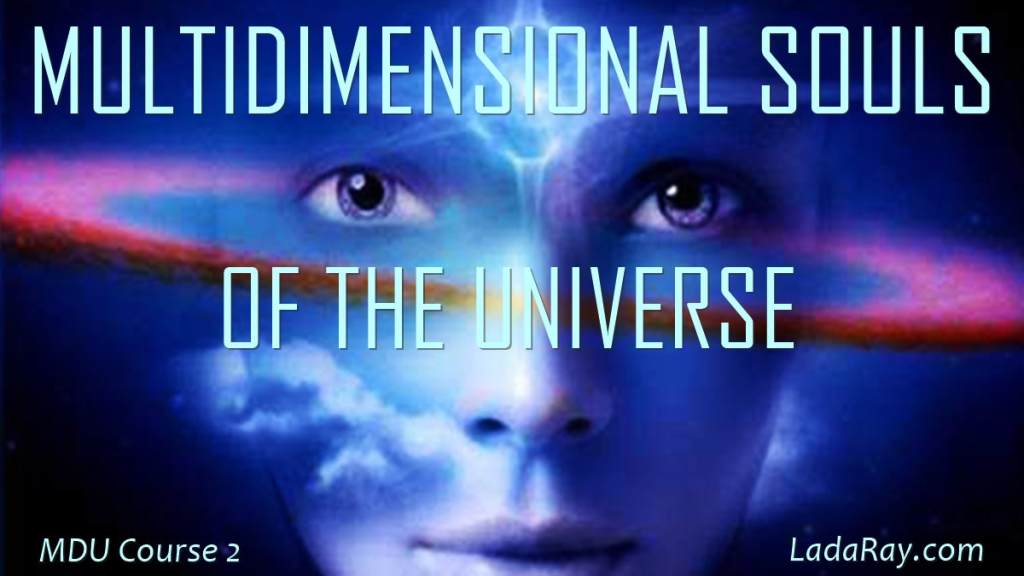





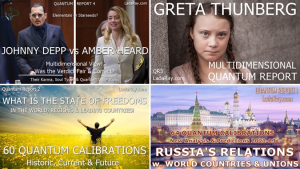

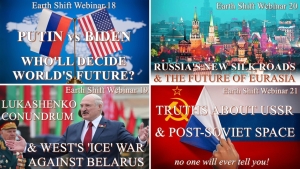
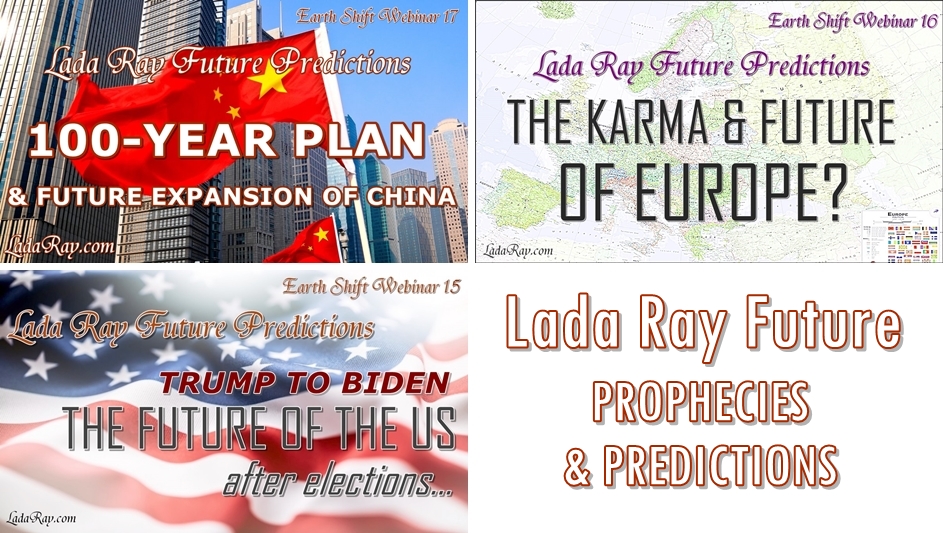


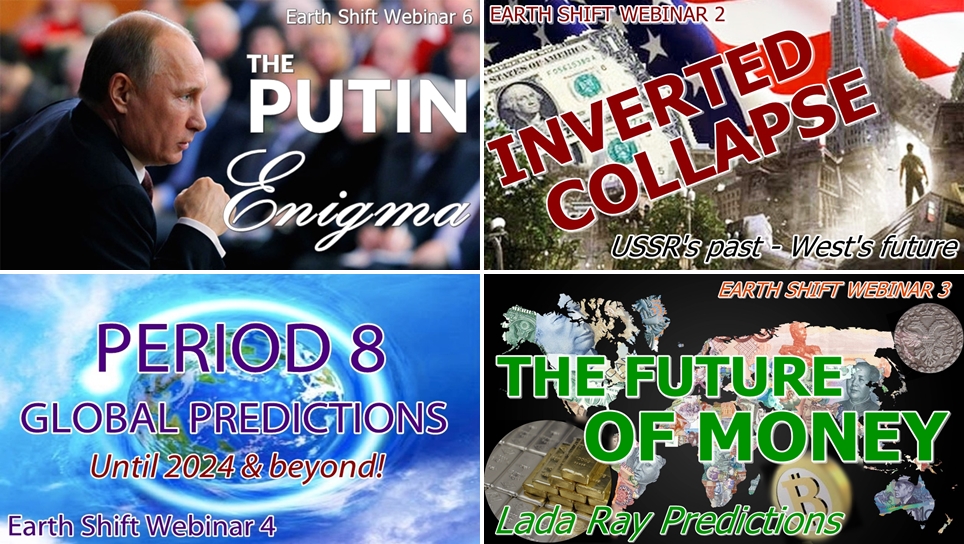


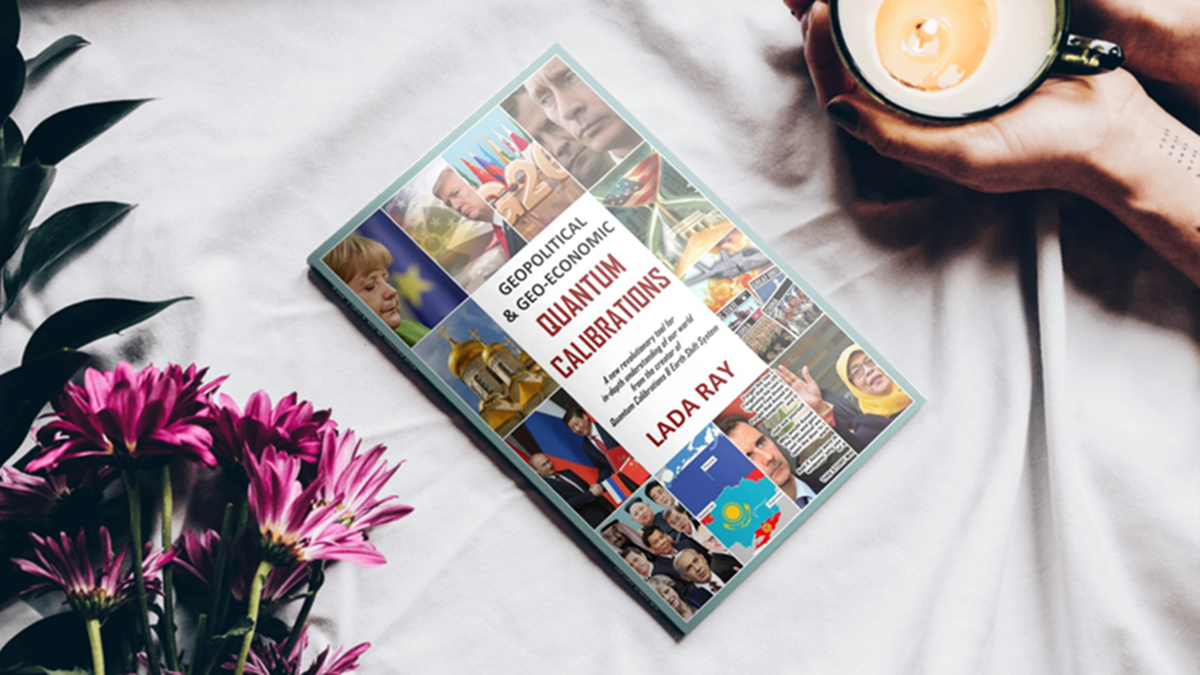







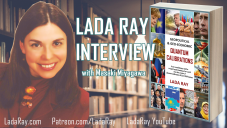


The handicap of knowing only one language–I feel for the Japanese, but they don’t know what they are missing. They all learn “English,” but it is taught in such a way as to both traumatize them and leave them incapable of communicating with foreigners. With such an inward focus, they are helpless against government propaganda. Information trickles in slowly, such that, for example, none of the knowledge from the last 20 years about treating type 2 diabetes with a low-carb approach has reached them, and a large portion of the population is ripe for the harvest by the medical mafia.
Learning a new language is like getting the keys to a new, snazzy, most amazing car. And when you can talk to people in their own language, they really open up. Lada, I could volunteer to help translate small articles or portions of articles in Russian into English, perhaps once a week.
I also have a question, since my crystal ball (Sears & Roebuck) gives me all kinds of future scenarios, how do you see the relationship between Japan and Russia evolving? Japan has attempted to straddle East and West (obviously difficult if they can’t even speak another language!), and they fancy themselves “western.” From my perspective, though, they are thoroughly eastern. The pro-Russian element in Japan has been presented as “right wing,” but that turns out to have been propaganda. Former prime minister Hatoyama is by no means right wing. The right wing is very unpopular with the middle class majority over its role in WWII, so calling pro-Russian sentiment “right wing” was a way of discrediting it. The right wing, that I associate with as a priestess, is unanimous in hating Russia. But again, they are an unpopular minority, becoming more and more unpopular now as Abe tries to resurrect an active military at the behest of the ever more desperate America. I’ll be surprised if the silent majority here does not oust Abe rather soon. Still, the average Japanese sees Russia as the number one enemy and Putin as a schemer, because that is what is being presented to them in their own language, which they must rely on for their news. They reject any attempt on my part to enlighten them as “Russian propaganda,” which they hear is rampant.
This is a brief on-the-ground report from the rural sidelines, but I can send you interesting bits as they arrive here.